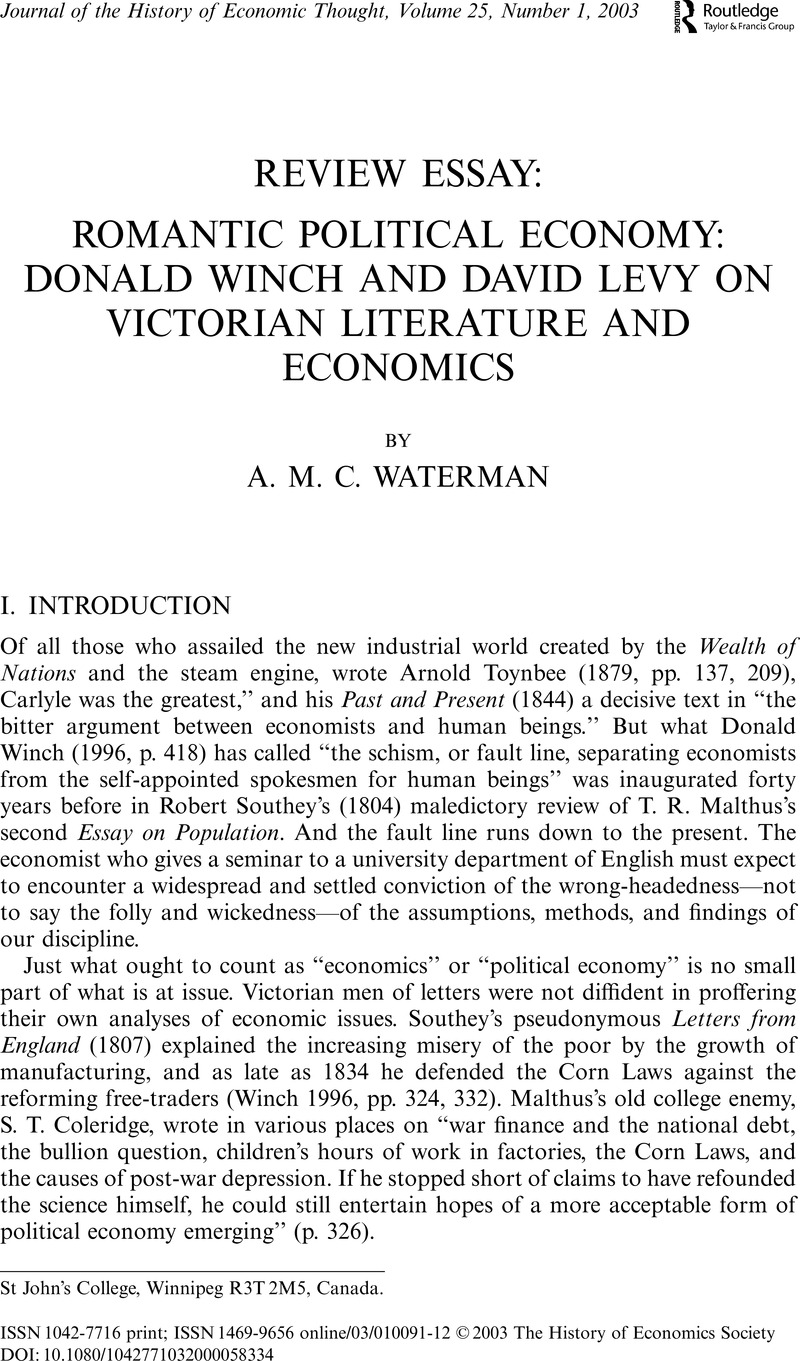Crossref Citations
This article has been cited by the following publications. This list is generated based on data provided by Crossref.
McLure, Michael
2013.
Assessments of A. C. Pigou’s Fellowship Theses.
History of Political Economy,
Vol. 45,
Issue. 2,
p.
255.
Waterman, A. M. C.
2021.
Against “Capitalism”: Eugene McCarraher on “The Enchantments of Mammon” — A Review Essay.
The European Journal of the History of Economic Thought,
Vol. 28,
Issue. 6,
p.
1044.



